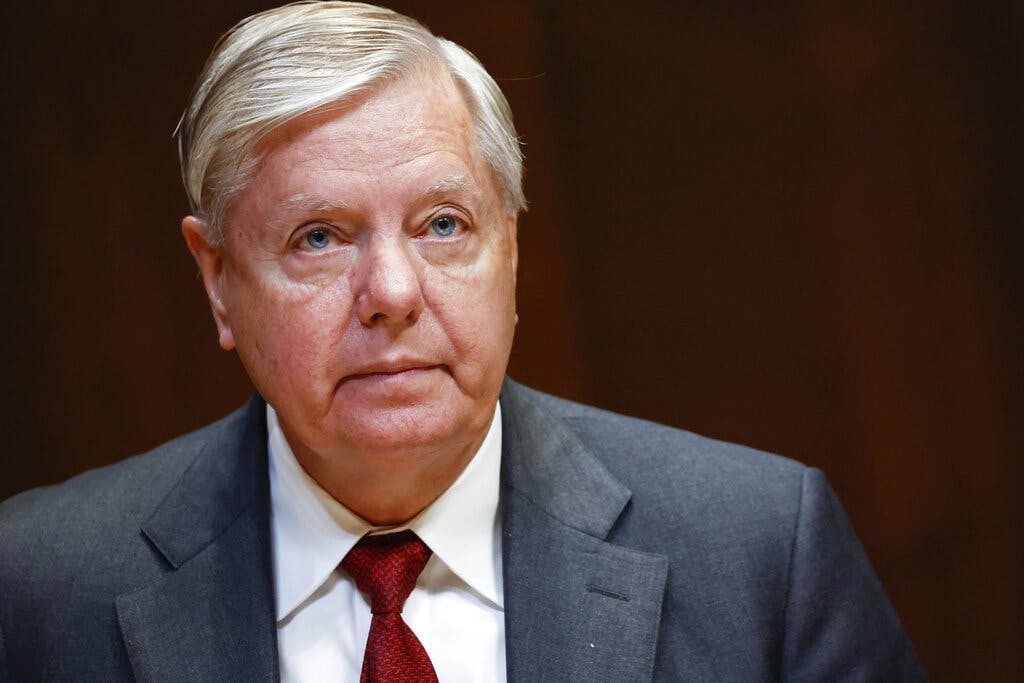Lindsey Graham Testing Limits of Speech and Debate Clause
The future of one of Congress’s most ancient prerogatives and Senator Graham’s legal future are set to intertwine.

The future of one of Congress’s most ancient prerogatives and Senator Graham’s legal future are set to intertwine. That convergence came into focus after a federal judge rejected Mr. Graham’s invocation of the Speech and Debate Clause to neutralize a subpoena summoning the lawmaker before a grand jury.
The investigation connected to that grand jury, which is pursuing charges relating to what the Fulton County district attorney has labeled efforts to “disrupt the lawful administration of the 2020 elections in the State of Georgia,” has already fingered an adviser to President Trump, Mayor Giuliani, as a figure of criminal interest.
In connection with the same investigation, a federal district court judge, Leigh Martin May, refrained from quashing a subpoena directed at Senator Graham, who had among other contentions argued that Article I, Section 6 of the Constitution shields him from the summons.
That clause dictates that senators and representatives “shall in all Cases, except Treason, Felony and Breach of the Peace, be privileged from Arrest during their Attendance at the Session of their respective Houses, and in going to and returning from the same; and for any Speech or Debate in either House, they shall not be questioned in any other Place.”
The roots of the Speech and Debate Clause stretch back to the days of England’s Glorious Revolution and Parliament’s battle for autonomy. It found expression in the English Bill of Rights of 1689, crafted by “the Lords Spiritual and Temporal and Commons” at Westminster to both welcome William II and Mary II as sovereigns and to circumscribe their power while bolstering Parliament’s autonomy relative to the Crown.
That spirit informed the Founders, pitted in their own struggle against monarchy a century later, and has been the understanding of the Supreme Court, which in United States v. Brewster, from 1972, held that the protections of the Speech and Debate Clause apply when lawmakers are ”acting in the sphere of legitimate legislative activity.” When they wander out of that circumference, its protections attenuate.
Justice Marshall Harlan II described it as a means of protecting “the integrity of the legislative process by insuring the independence of individual legislators,” and in the process preserving “the constitutional structure of separate, coequal, and independent branches of government.”
If the Speech and Debate Clause applies, lawmakers are protected against, as the high court put it in Eastland v. US Servicemen’s Fund, “civil as well as criminal actions, and against actions brought by private individuals as well as those initiated by the Executive Branch.” The goal is to “insure that the legislative function the Constitution allocates to Congress may be performed independently.”
The immunity provided by the clause is deep, but there are limits to its breadth. Those limits were explored in Gravel v. United States, also from 1972, which turned on a congressman from Alaska, Mike Gravel, who attempted to read the Pentagon Papers into the public record and then publish them with the Beacon Press.
In a 5-to-4 decision penned by Justice Byron White, the court found that congressional aides were protected by the Speech and Debate Clause as “alter egos” to lawmakers. The court refrained from extending the clause to the publication agreement, finding that “the cooperation of Beacon Press was in no way essential to the deliberations of the Senate; nor does questioning as to private publication threaten the integrity or independence of the Senate.”
Mr. Graham appeals to the Speech and Debate Clause in respect of phone calls to Georgia’s secretary of state, Brad Raffensperger, in the weeks following the 2020 vote. He argues that in as much as those calls were conducted with an eye on certifying the election and presuposed a legislative interest in voting, they transpired under its protective awning.
Judge May disagreed, noting that activities that are “political in nature rather than legislative” do not earn the clause’s protection and that “the record must be more developed so that the Court may determine in the first instance whether the entirety of Senator Graham’s calls to Georgia election officials in fact constitute legitimate legislative activity.”
Mr. Graham has vowed to appeal the ruling to the riders of the United States Court of Appeals for the Eleventh Circuit, releasing a statement to the effect that “the Constitution’s Speech or Debate Clause prevents a local official from questioning a Senator about how that Senator did his job ”

